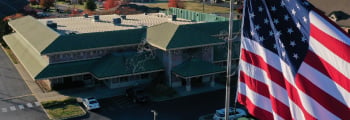- Home
- PFI About Us
About PFI Western Store
The Clothes Came With the Building
PFI Western Store originated in 1975 as Preferred Farmers Incorporated, a dusty livestock feed and farm supply business located on Springfield's northwest side.
There has always been a tremendous amount of risk involved with farming, so the partners originally decided to focus on those farmers with the best track records who had the best chance of paying their feed bills. By incurring less risk with focusing on the "preferred farmers" as their customers, they could pass along better prices.
Though its means were modest (the first store boasted only one desk, two chairs, a telephone, and lots of feed bins) PFI had ambitious dreams even from the beginning. That goal, shared by the original five partners, was to become the best livestock feed company in the region.
But then a funny thing happened on its way to becoming a successful feed store. When more space was needed to make room for the growing line of farm supplies, PFI bought the Western wear clothing shop next door. The clothes came with the building.
And then an even funnier thing happened. While the original plan was to sell off the clothing inventory as quickly as possible and replace it with farm supplies, Larry Burks and Randy Little, the two remaining partners, discovered that their customers liked the Western-inspired fashions. They agreed to keep the clothes in stock. When the original merchandise that came with the store sold out, they restocked. And restocked. And restocked. Before long the feed bins were tossed to make room for more clothes.Randy Little became sole owner of PFI in the 80's with his college sweetheart-turned-wife Johnelle serving as his fashion guide. Having grown up around horses, she knew Western styles better than her husband, an agricultural economics major from the University of Missouri. Together, the Littles became a formidable force in the world of Western fashion, taking Preferred Farmers, Inc. through various names and incarnations before finally stopping for good at PFI Western Store, now a multi-million dollar empire with the largest Western retail center in Missouri, located at U.S. 65 and Battlefield.
Quite a journey for a business that never set out to sell anything other than farm supplies. But therein lies the beauty (and perhaps the genius) of PFI. By watching the folks who shopped at his once humble feed store and listening to what they wanted, Little built PFI around his customers, giving them what they wanted: functional but fun Western-inspired fashions, rather than the livestock feed he originally thought they needed.
So far, so good. No complaints yet from any underfed livestock or any underdressed cowboys or cowgirls.
Challenges? What Challenges?
There were only a few minor challenges in PFI's early days. The original feed store was located on the then-unfashionable northwest side of town. The transition from feed store to Western fashion outpost came at the very time the Urban Cowboy trend was on its way out. Even the initials behind PFI were all wrong: Preferred Farmers Incorporated hardly described the products or services offered by the Western retailer.And, oh yeah, Randy Little had no prior retail experience.
Nothing that couldn't be overcome with a little horse sense and lots of humor, both of which Little used in his early advertising spots, which played on the dual universe he had unintentionally created when he began selling clothing in the feed store.
Early radio ads featured two voices: "I got my dog food there," one voice said. "Well, I got these boots there for $99.99," the second voice answered. And then the tag question: "Is it a feed store or is it a Western store?"
Little's philosophy? Get the customers in the door and let them decide what kind of store it was. Better yet, create a retail center that broke all the rules and resisted easy categorization.
That's what PFI did with its 30,000 square-foot retail center. Opened in 1993, the new store addressed the location problem and helped establish PFI's unique identity as the retailer like no one else.
To meet his competition head-on, Little knew he had to break a few rules. He did so with gusto, developing a good, better, best philosophy of buying that appealed to all levels of taste and budget. Unlike the inventory at the discount megastores and the franchised stores in the nearby mall, PFI prides itself on its unexpected and even outrageous inventory of 15,000 (yes, thousand) styles of boots available in a childs size 4 to mens 16 and in leathers that range from cowhide to ostrich to kangaroo.
Recognizing that the Urban Cowboy trend might come and go, but that Western lifestyle was as much a part of the American landscape as the Grand Canyon or the Ozark Mountains, PFI not only survived but endured, even though the initials still don't make much sense.
Anything but Ordinary
Anyone can hang a denim shirt on a rack and call it just another ordinary Western store. PFI was built as anything but ordinary, as suggested by its 30,000 square-foot retail center modeled after a turn-of-the-century train station.
Real horses can often be found in the parking lot, trying on a new saddle or being fit for a custom-made saddle by one of PFI's skilled saddle makers. In either case, the PFI secret to saddles is deceptively simple: Always make the horse and the customer happy.
Inside PFI, the “anything but ordinary” theme continues. The entire retail center has an undecidedly un-mall-like feel. Instead of just metal clothes racks, fashions sometimes hang on rustic wooden displays. But of course it's the jaw-dropping array of boots that puts the Western in PFI Western store. Kenny Rogers once sent a limo to PFI pick up 15 pairs of cowboy boots.
Give to Kids Who Can't
Pulling oneself up by their own bootstraps is a familiar phrase to virtually all Americans, whether they've ever been on a horse or seen a pair of bootstraps. That's because self-reliance and independence are as much a part of the fabric of our country as is faded blue denim.
But there are those who, because of physical, mental, or economic limitations, are less able to pull themselves up by their bootstraps. Those are the people Randy Little wanted PFI to reach out to help.
Giving to kids who can't is a commitment Randy and Johnelle Little took seriously. PFI has sponsored the Boys & Girls Town of Missouri Wagon Train Ride and provided holiday shopping sprees for the residents of Boys Ranch. PFI has also been a Grand Giver to the Developmental Center of the Ozarks and donated a percentage of boots sales to help provide a bone marrow transplant for a Springfield child suffering from leukemia, as well as being a major supporter of the American Cancer Society's Cattle Baron's Ball.
Camp Barnabas holds a special place in PFI's heart. The Purdy, MO-based camp is a place where children suffering from disease and disability can experience the kind of outdoor adventures (swimming, camping, creating crafts for Mom and Dad) most of us took for granted as children. In 2001, PFI sponsored an outdoor concert featuring Toby Keith and Montgomery Gentry to raise funds and awareness for Camp Barnabas so that more children facing life-threatening illnesses or disabilities could enjoy a happy summer at no expense to their families.
Of course, it's always fun when charitable giving can be combined with family entertainment. That's exactly what happened when PFI helped bring the PBR Extreme Nationals Professional Bull Ride to Hammons Student Center in September 2002. In addition to providing an exciting spectacle for area families, PFI donated $20,000 in ticket proceeds to Missouri State University. The scholarships established from that event are just another way PFI reaches out to those who simply need a little financial assistance so that their education will allow them to pull themselves up by their own bootstraps.
One Last Thing... An Attitude of Gratitude
It's tempting to think that PFI is where it is today solely because of an enlightened management philosophy or an inspired company history. The truth is PFI became successful because of the people who come here every day both as customers and employees.
From the very beginning, Randy Little knew he had to hire people who had more experience than him. And not just retail experience.
To create the kind of retail experience he wanted to build, Little knew he had to find old-fashioned craftspeople who still knew the art of blocking hats, making saddles, and custom-fitting a pair of cowboy boots.
He was blessed that such talented people live right here in Springfield or close enough that they were willing to commute. That's why Springfield is as much a part of the PFI success story as is Randy and Johnelle Little and all those thousands of pairs of cowboy boots.
But PFI would be a deserted storefront were it not for the customers who shop there time and again. Whether it's to pick up a denim shirt to wear on casual Friday or to shop for a child's first pair of cowboy boots, PFI has become the place people turn when they need a little Western in their lives.
The fact that Americans still hunger for the fashions that evoke the history of our country is a tribute both to the timeless fashions and the proud history of our nation. Being able to fulfill that hunger for the pure and honest Western lifestyle is a privilege everyone at PFI feels grateful to be able to do every day.
In a very real sense, Springfield and PFI have grown up together over the last forty years. While both are committed to keeping up-to-speed with technological innovations, neither are willing to abandon the solid roots and traditional values that got them where they are today.
These roots that originally focused on taking care of the family farmer and all the values they represent: hard work, honesty, friendly manners and always willing to lend a helping hand, are still at the heart of PFI today. PFI is excited to carry these values on with the Cavender's family of stores and in October of 2021 PFI became Cavender's PFI, Home of BootDaddy. We are looking forward to continuing to grow with Cavender's great company.


